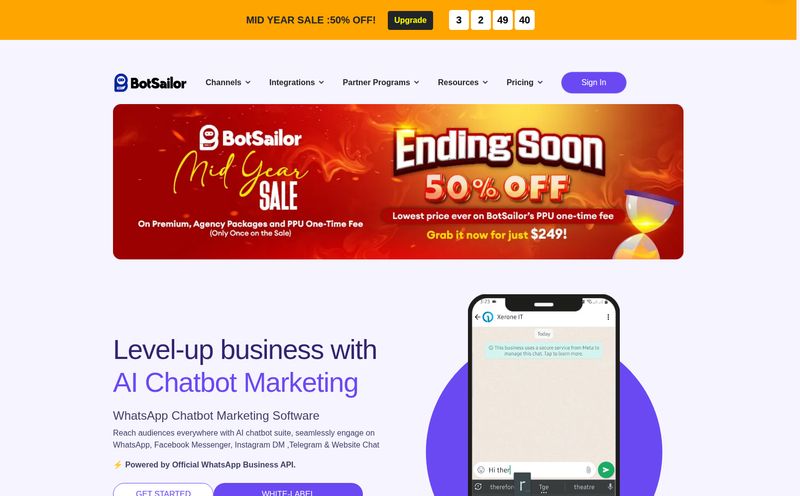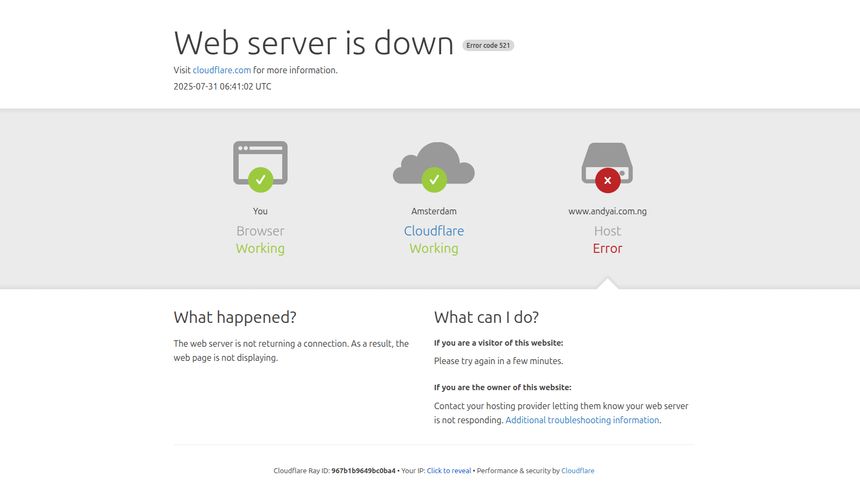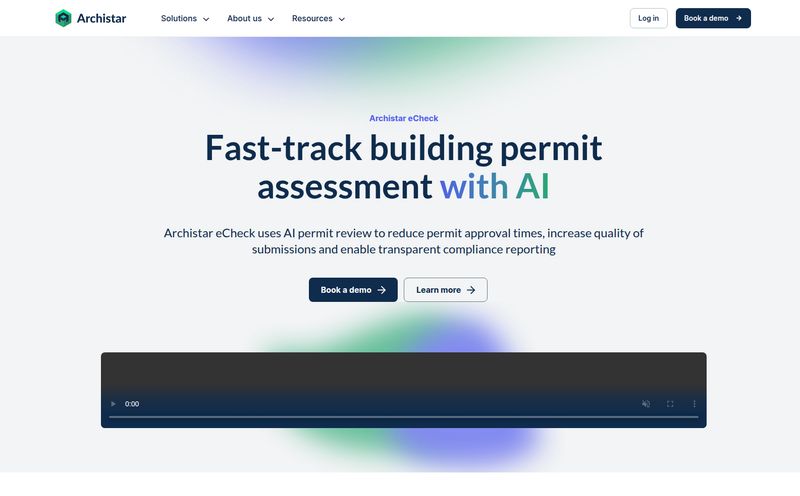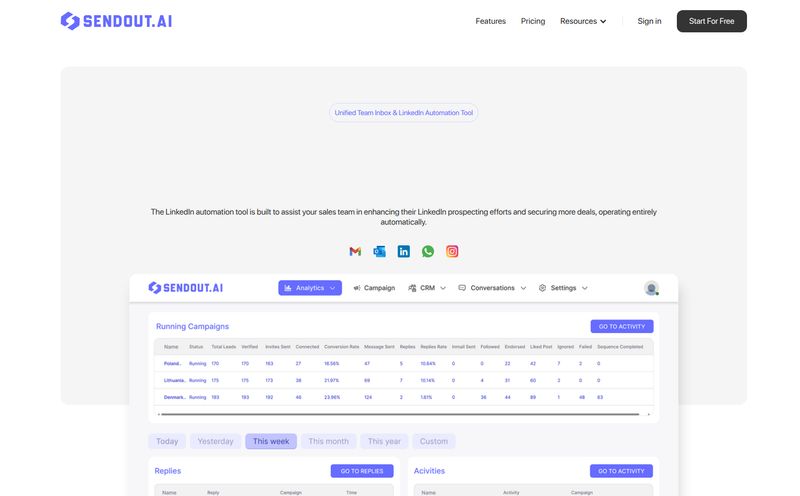I’ve been in the SEO and traffic game for a long, long time. I’ve seen platforms come and go, each one promising to be the next big thing, the “ultimate solution” to all our lead generation woes. So when I first stumbled upon a platform boldly calling itself Digital God, I’ll admit, my first reaction was an eye-roll. Seriously? The name alone is a masterclass in audacity.
But then I saw their core promise: No Upfront Fees. You only pay for results. Now that… that got my attention. In a world where we’re all bleeding money on SaaS subscriptions that often under-deliver, a purely performance-based model feels like a breath of fresh air. Or a trap. I wasn’t sure which. So, I did what any self-respecting digital marketer would do: I went down the rabbit hole to figure out if this “God” was a savior or just another false prophet.
So, What Is This Digital God Platform, Really?
Let's cut through the marketing fluff. Digital God, by a company called Myuser, isn't just another email automation tool or a CRM. It positions itself as an autonomous AI agent that handles your entire client acquisition pipeline. We’re talking automated sales, marketing, cold outreach, booking meetings, answering questions, even handling customer support. Think of it less as a tool you operate and more like a commission-only sales rep you hire—one that’s powered by algorithms, works 24/7, and has access to a database of over 300 million companies.
The entire premise is built on a simple, yet powerful idea: you tell the AI who your ideal customer is, and it just… goes. It finds them, it crafts hyper-personalized emails, it follows up, it books the meeting on your calendar. It's the “set it and forget it” dream that so many platforms promise but rarely deliver.
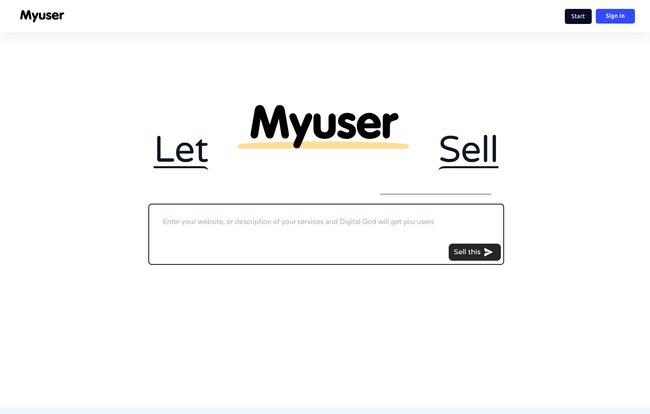
Visit Digital God
The Real Magic Trick: A Pay-For-Performance Model
This is the part that really disrupts the status quo. For years, the model has been to pay a monthly fee for access to a tool, whether you get results or not. Digital God flips that script entirely.
Their pricing, at least for the Business plan, is stunningly simple:
- $2 for the first email sent to a prospect.
- $50 for a signup from a landing page it creates for you.
That’s it. No monthly subscription. No setup fee. You pay for actions, not access. This is a massive confidence move from them. It says, “We are so sure our AI will work that we’re willing to bet our own revenue on it.” For a startup or a small business terrified of burning cash on ineffective marketing, this model is incredibly appealing. But it also means you have to have your numbers dialed in. If your average customer value is low, this could get pricey fast. It’s a classic Cost Per Lead (CPL) model, just executed by an AI.
Breaking Down The Features
Okay, so it talks a big game. But what does it actually do? The functionality is pretty broad, but it boils down to a few core areas.
Hyper-Personalized Outreach That Raises Eyebrows
This is where my skepticism really kicked in. The site claims the AI performs “20 mins research” for each hyper-personalized email. Twenty minutes? Per prospect? I’ve hired human VAs who couldn't maintain that level of dedication. How an AI does this at scale is the big question. It likely scrapes LinkedIn, company websites, and recent news mentions to piece together a genuinely relevant opening line. If it can pull this off consistently, it solves the biggest problem with cold outreach: not sounding like a robot. The days of `"Hi {{first_name}}, I love {{company_name}}!"` might finally be numbered.
Truly Autonomous Sales and Support
Beyond just sending emails, the platform claims to be fully autonomous. It doesn’t just book meetings; it can answer prospect questions and handle inbound leads that come to your site. Imagine a chatbot, but one that’s proactively hunting for leads instead of just waiting for someone to click on it. The website mentions an API that can handle all inbound sales and support on autopilot. This is where you’re really handing over the keys to the kingdom, letting an AI become the first point of contact for your brand. It's both exciting and a little terrifying.
"Agents will find the prospects...do personalized outreach and follow-up on prospect and send the meeting link to your calendar...it fully automates the process of getting prospects whom you would normally pay $45 per hour."
This quote from their site frames the value proposition perfectly. They're not competing with other software; they're competing with human labor.
The Risks of Relying on an AI God
Look, I'm excited about this, but let's be real. Handing over your brand's voice and sales process to a third-party AI is a massive leap of faith. The name "Digital God" implies perfection and omniscience, but we know AI isn't there yet. What happens when it misunderstands a prospect's tone? Or makes a factual error in a personalized email? These aren't just minor bugs; they can be brand-damaging mistakes.
There's also the risk of dependency. If Digital God becomes your primary source of new clients, you're building your business on rented land. What if they change their pricing model? Or what if their AI's effectiveness wanes as more people start using similar tactics? You need an exit strategy or at least a concurrent, human-led strategy. Blind faith is never a good business plan, no matter how divine the platform's name is.
Who Should Give Digital God a Shot?
So, who is this actually for? In my opinion, it’s not for everyone.
It seems almost tailor-made for startups, solo entrepreneurs, and small-to-medium businesses that have a proven offer but lack the time or manpower for consistent outreach. If you're a founder who's still doing all the selling yourself, this could be a game-changer, freeing you up to focus on product and service delivery.
It could also be a powerful tool for marketing and sales agencies looking to scale their own lead generation without hiring more BDRs. However, huge enterprises with very specific compliance needs and deeply entrenched, multi-touch sales processes might find it too much of a black box.
A Closer Look at the Pricing Tiers
Let's put the pricing under a microscope. It’s simple on the surface, but the implications are important.
| Plan | Pricing Model | Key Features |
|---|---|---|
| Business | $2 per first email, $50 per landing page signup | Full Autopilot, Hyper-Personalization, Video Outreach, Meeting Booking, Access to 300M+ companies. |
| Enterprise | Custom / Volume-based | Everything in Business + 24/7 Support, Automated Payments, Lead Nurturing, Equity-based pricing available. |
The equity-based pricing option for the Enterprise plan is fascinating. It shows they are willing to partner with high-potential companies, which is a rare and compelling offer. For the Business plan, the math is simple: to get one meeting, if your response rate is 2%, you'll need 50 emails. That's $100 per meeting booked. Is that a good price? For a high-ticket B2B service, absolutely. For a low-margin product, not a chance.
Frequently Asked Questions
- 1. Are there really no hidden setup fees or monthly costs?
- Based on all their messaging, that seems to be the case. The model is purely pay-for-performance: you pay per email sent or per lead generated from their landing pages. This is their main hook.
- 2. How can I control the brand voice and messaging?
- This is the most critical question. The setup process involves "talking to Digital God," which implies you provide it with your ideal customer profile, value propositions, and case studies. You essentially train it on your business, but the level of granular control over every single message remains a bit of a black box.
- 3. Is this platform better for B2B or B2C businesses?
- Given the mention of a "300M+ companies" database and the focus on things like hyper-personalized emails and meeting booking, it's heavily skewed towards B2B client acquisition.
- 4. What happens if the AI generates a bad lead or sends a poor email?
- This is the inherent risk. Unlike a human salesperson you can retrain, your recourse with the AI is likely limited to refining your initial inputs. The pay-per-email model means you still pay for the outreach, even if it doesn't perform as hoped. Human oversight and monitoring will be crusial.
My Final Verdict on Digital God
So, is Digital God a miracle worker? Probably not. No tool is. But is it a fascinating, potentially disruptive platform that challenges the way we think about sales and marketing software? Absolutely.
The pay-for-performance model alone makes it worth considering for any business tired of the endless cycle of paying for software and hoping for results. The risk is transferred from you to the platform, and that's a powerful shift.
My final thought is this: don't treat it as a god. Treat it as a powerful, experimental new hire. Give it a clear, limited budget. Monitor its performance closely. And never, ever forget the value of the human touch. It might just be the tool that automates the 80% of grunt work, freeing you up to do the 20% that actually closes deals and builds relationships. And for many of us, that would be a blessing in itself.
Reference and Sources
Primary analysis conducted from the official Digital God website provided by Myuser.
For context on performance marketing trends: The Rise Of Performance Marketing In A Privacy-First World - Forbes
